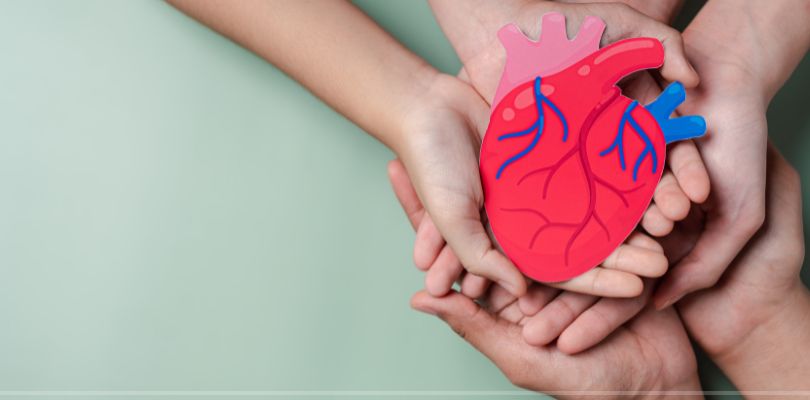Heart Health Alert
A heart attack happens when blood flow to your heart is blocked. Knowing the signs of a heart attack can save lives because quick action is important.
7 Heart Attack Signs
1. Chest Pain or Discomfort
One of the most common signs of a heart attack is chest pain or discomfort. It might feel like pressure, squeezing or a heavy weight on your chest. The pain can last for a few minutes or go away and come back.
2. Pain in Other Parts of the Body
Heart attack pain can spread beyond your chest. You might feel pain in your arms, back, neck, jaw or stomach. This pain can come and go or stay constant.
This article will explore a von Willebrand disease diet, looking at some of the best and worst foods to eat. Learn more here.
3. Shortness of Breath
Feeling short of breath, even when you’re not doing anything physical, can be a sign of a heart attack. This can happen before or along with chest pain.
4. Nausea or Vomiting
Some people feel sick to their stomach or even throw up during a heart attack. This is more common in women, but men can experience it too.
5. Sweating
Breaking out in a cold sweat or sweating more than usual, especially if it’s combined with other symptoms, can be a sign of a heart attack.
6. Lightheadedness or Dizziness
Feeling lightheaded or dizzy can be a sign that your heart isn’t getting enough blood. This might make you feel like you’re going to faint.
7. Fatigue
Feeling very tired for no clear reason, even if you haven’t done much, can be a sign of a heart attack. This is also more common in women.
What to Do During a Heart Attack
If you think you or someone else is having a heart attack, it’s important to act fast. Here’s what to do:
- Call 911 right away: Don’t wait to see if the symptoms go away. The faster you get help, the better your chances of surviving and minimizing heart damage.
- Chew an aspirin: If you have aspirin nearby, chew one while you wait for help. Aspirin can help thin your blood and make it easier for your heart to pump.
- Stay calm and rest: Try to stay calm and rest while you wait for the ambulance. Moving around can make things worse, so sit or lie down if you can.
- Follow the doctor’s orders: When you get to the hospital, doctors will decide the best treatment. This might include medications, surgery or other procedures to open blocked arteries.
Treatments for a Heart Attack
After a heart attack, doctors may use different treatments to help you recover and prevent future attacks:
- Medications: Doctors might prescribe medications to help your heart heal and to prevent more heart attacks. These could include blood thinners, beta-blockers and cholesterol-lowering drugs.
- Angioplasty: In this procedure, doctors use a small balloon to open up blocked arteries. They might also place a stent, a tiny tube, to keep the artery open.
- Surgery: In some cases, doctors might recommend bypass surgery, where they create a new path for blood to flow around the blocked arteries.
- Lifestyle changes: After a heart attack, you’ll need to make some changes to your lifestyle. This includes eating healthy, exercising, quitting smoking and reducing stress to keep your heart healthy.
Heart Troubles
Knowing the signs of a heart attack can help you act quickly and save lives. If you notice any of these symptoms in yourself or someone else, don’t wait—get help right away. With the right treatment and lifestyle changes, you can recover from a heart attack and keep your heart healthy for years to come.
Read on to learn about 10 signs of skin cancer.







